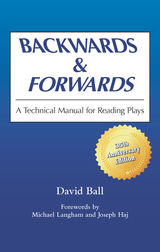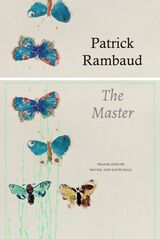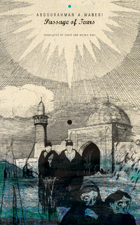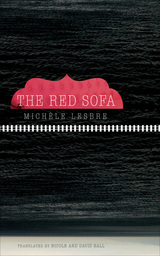
The best-selling script analysis book for thirty-five years
Considered an essential text since its publication thirty-five years ago, this guide for students and practitioners of both theater and literature complements, rather than contradicts or repeats, traditional methods of literary analysis of scripts.
Ball developed his method during his work as literary director at the Guthrie Theater, building his guide on the crafts playwrights of every period and style use to make their plays stageworthy. The text is full of tools for students and practitioners to use as they investigate plot, character, theme, exposition, imagery, conflict, theatricality, and the other crucial parts of the superstructure of a play. Also included are guides for discovering what the playwright considers a play’ s most important elements, thus permitting interpretation based on the foundation of the play rather than its details.
Using Shakespeare’s Hamlet as illustration, Ball assures a familiar base for clarifying script-reading techniques as well as exemplifying the kinds of misinterpretation readers can fall prey to by ignoring the craft of the playwright. Of immense utility to those who want to put plays on the stage (actors, directors, designers, production specialists) Backwards & Forwards is also a fine playwriting manual because the structures it describes are the primary tools of the playwright.

“It was twenty-five centuries ago in the land of Song, between the Yellow River and the River Huai: Zhuang Zhou was born without a cry with his eyes wide open.”
Welcome to China in the fifth century BCE, a colorful, violent, unstable world into which Zhuang is born. Here royals raise huge armies, constantly waging wars against one another. They have slaves, concubines. Gold is everywhere. And so is hunger. Born rich and entitled, Zhuang learns to refuse any official function. His travels bring him closer to ordinary people, from whom he learns how to live a simple and useful life. This is how he will become one of the greatest Chinese philosophers who gave his name to his legendary book, the Zhuangzi, one of the two foundational texts of Taoism—a magnificent procession of lively stories in which we meet dwarfs, virtuous bandits, butchers, powerful lords in their castles, turtles, charming concubines, and false sages. In this remarkable bildungsroman, award-winning French novelist Patrick Rambaud spins out the extraordinary life of Zhuang Zhou—a poetic, cruel, and often humorous tale, halfway between fable and philosophy.


In The Red Sofa, we meet Anne, a young woman setting off on the Trans-Siberian Railway in order to find her former lover, Gyl, who left twenty years before. As the train moves across post-Soviet Russia and its devastated landscapes, Anne reflects on her past with Gyl and their patriotic struggles, as well as on the neighbor she has just left behind, Clémence Barrot.
Rocked by the train’s movements Anne is moved by her memory of Clémence, who is old and whose memory is failing, but who has not lost her taste for life and adventure. Ensconced on her red sofa at home, Clémence loves to tell Anne her life story, mourning lost loved ones and celebrating the lives of brave, rebellious women who went before her. Eventually, Anne’s train trip returns her home having not found Gyl, but having found something much more meaningful—herself.
READERS
Browse our collection.
PUBLISHERS
See BiblioVault's publisher services.
STUDENT SERVICES
Files for college accessibility offices.
UChicago Accessibility Resources
home | accessibility | search | about | contact us
BiblioVault ® 2001 - 2024
The University of Chicago Press









